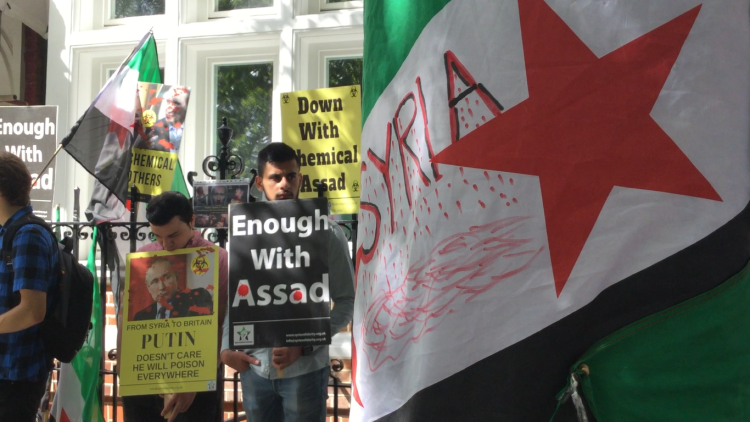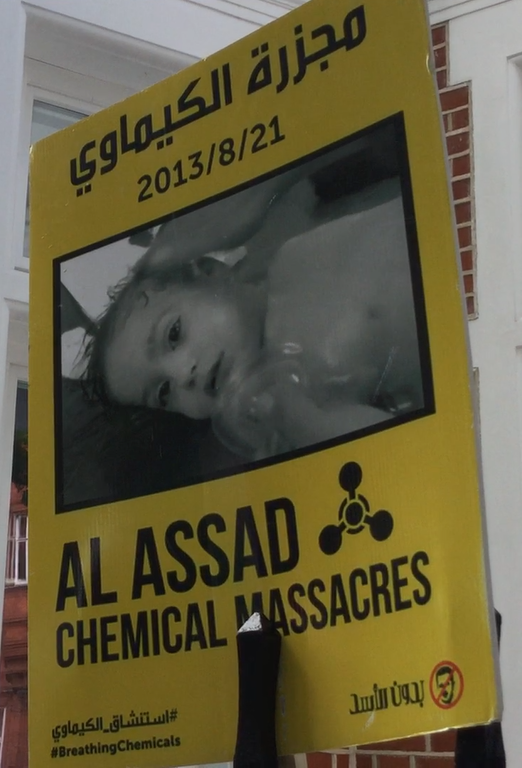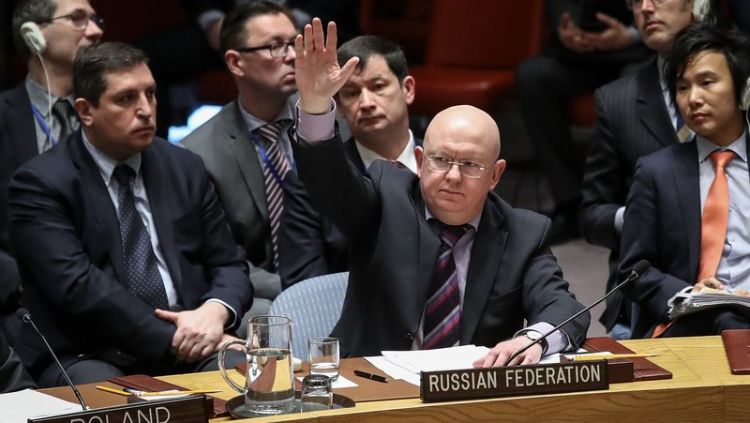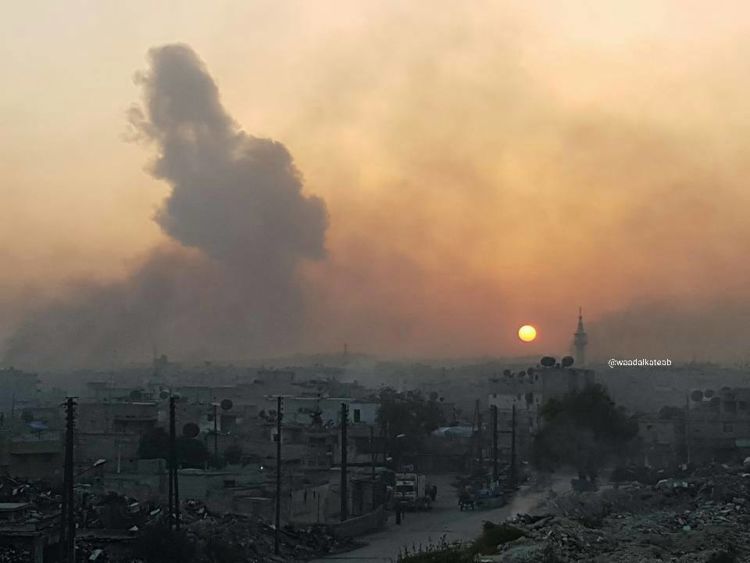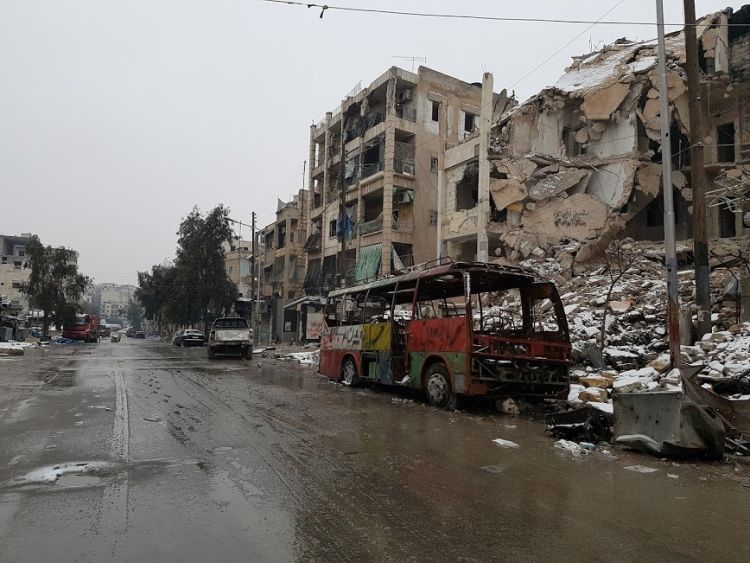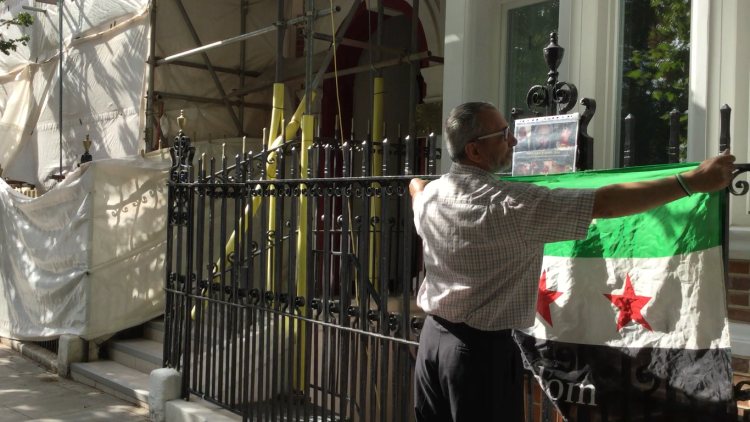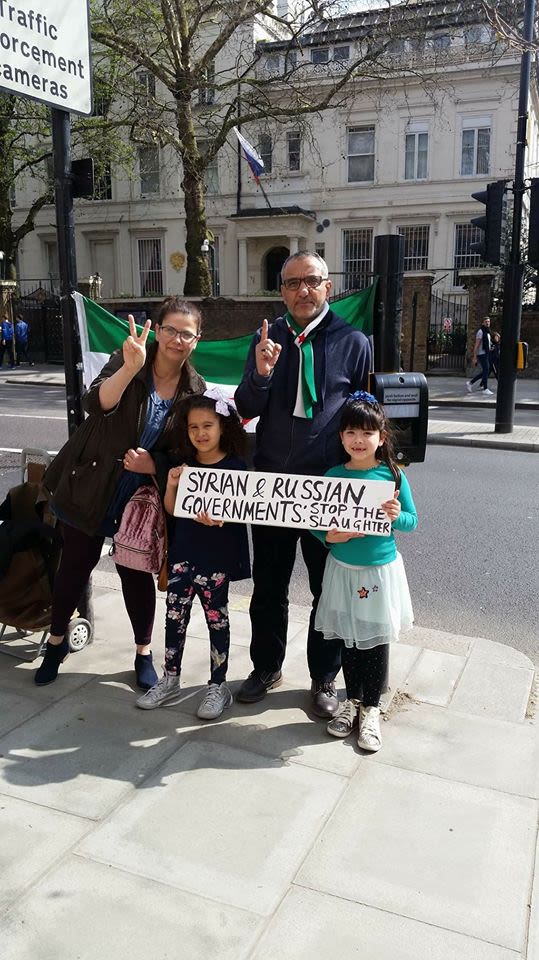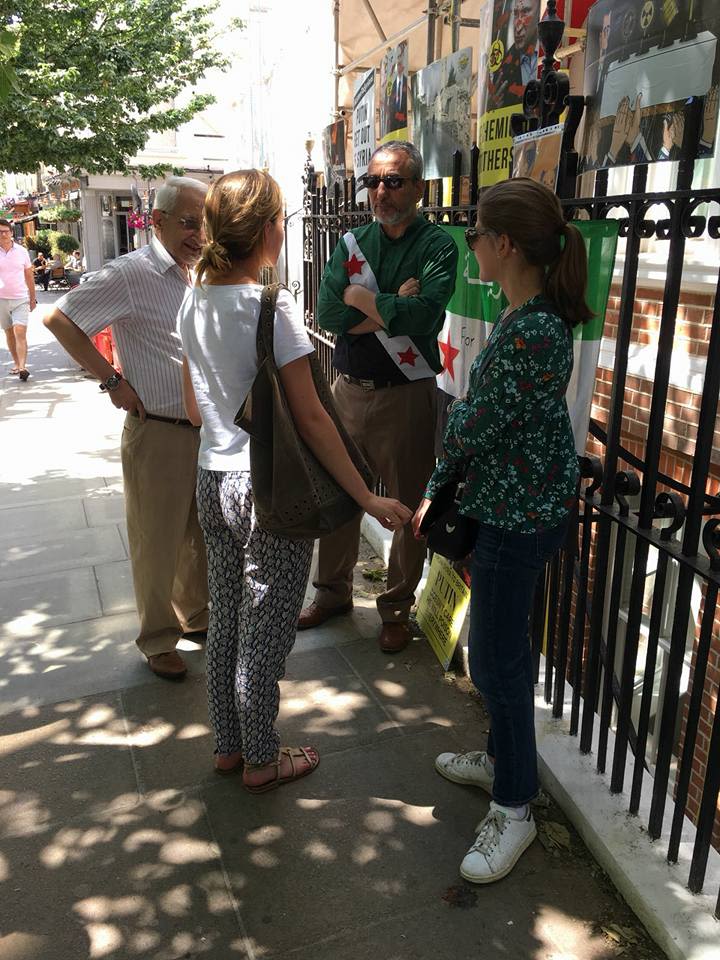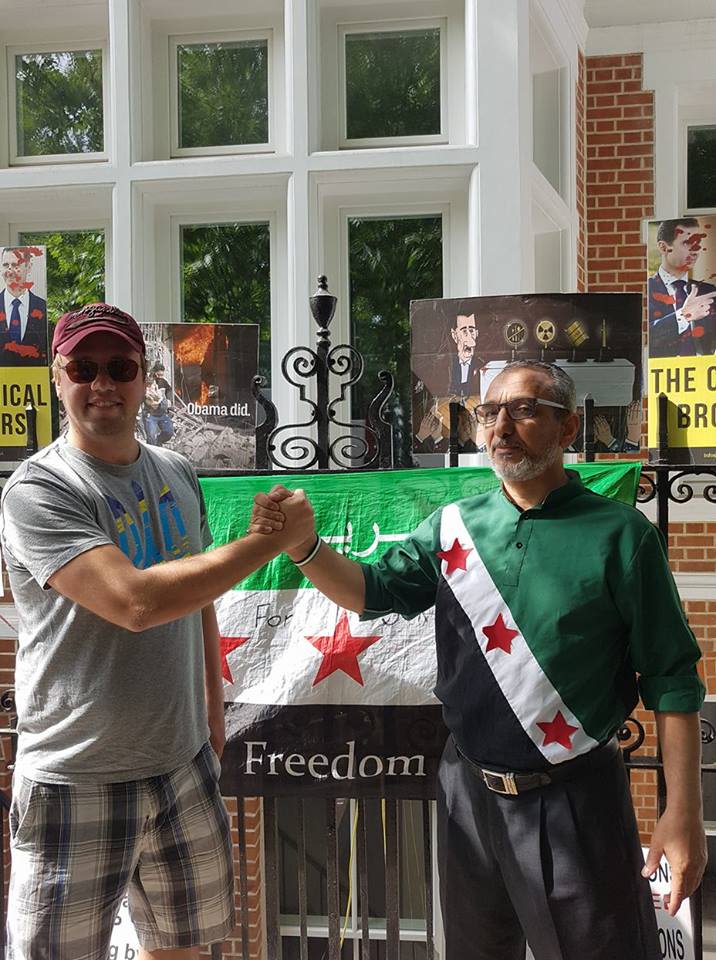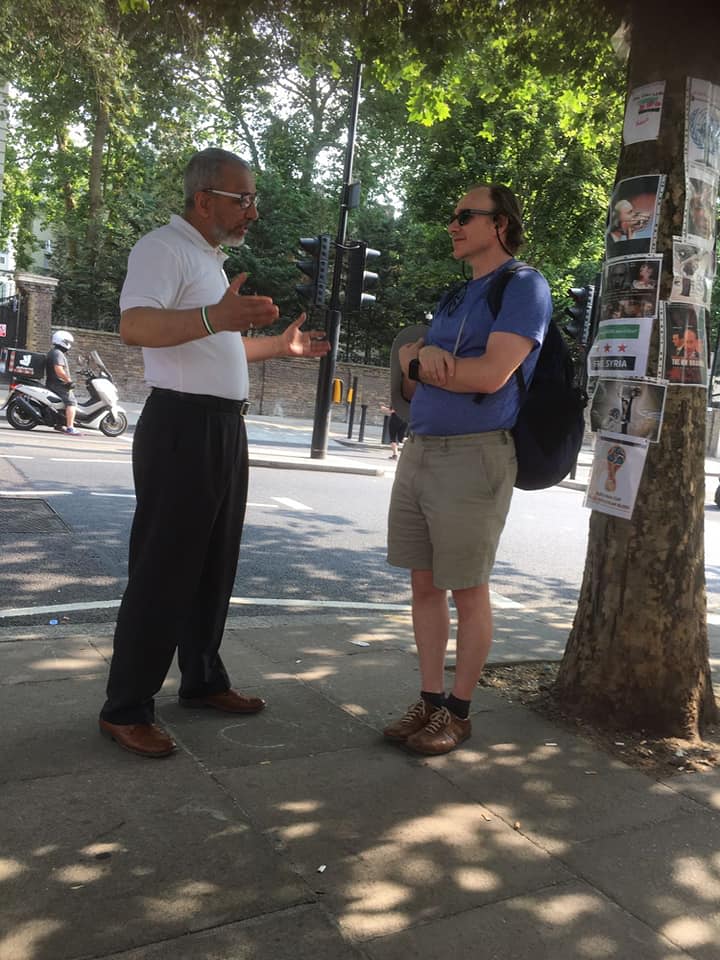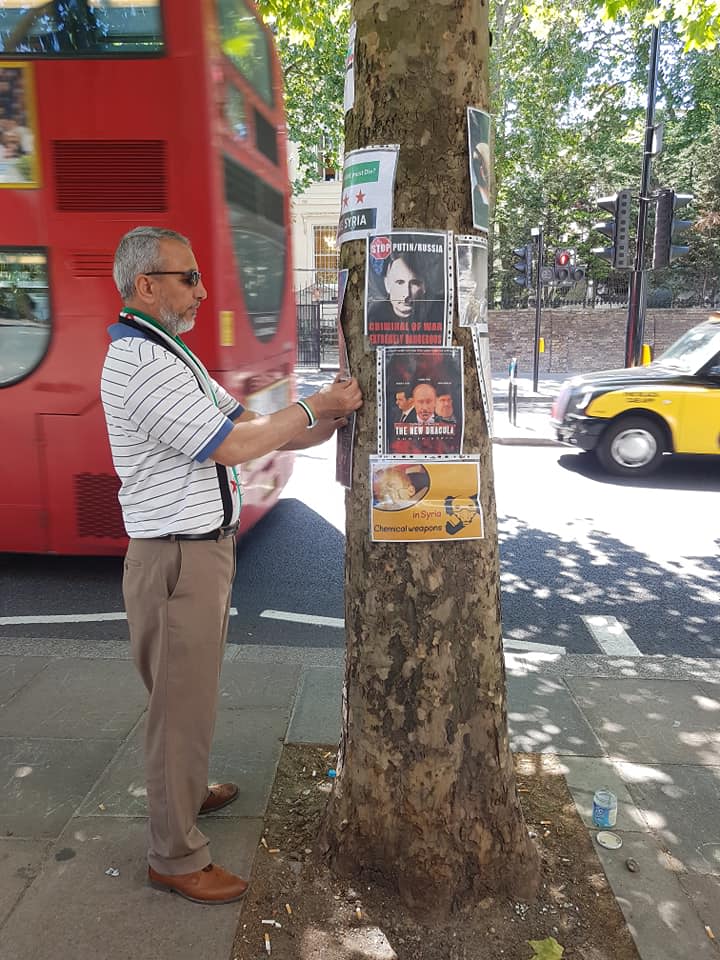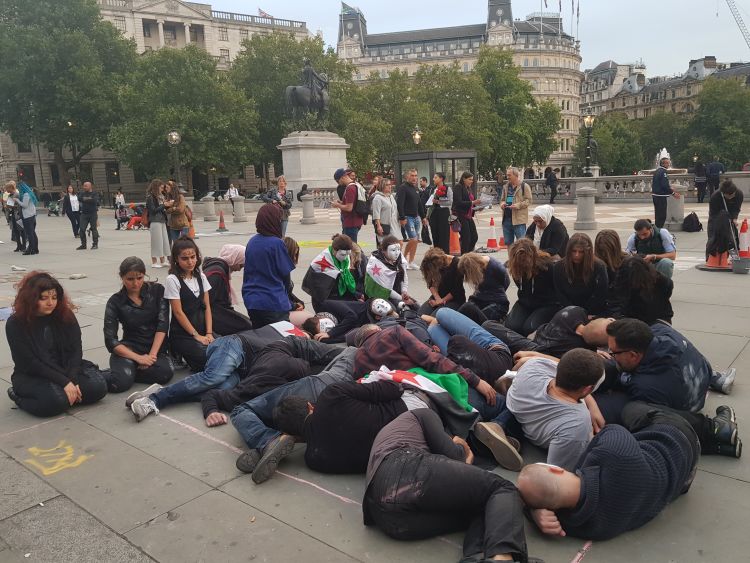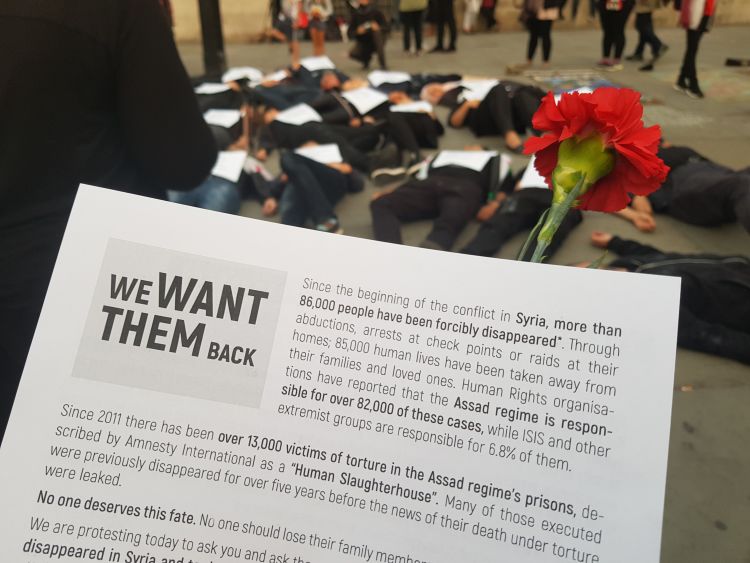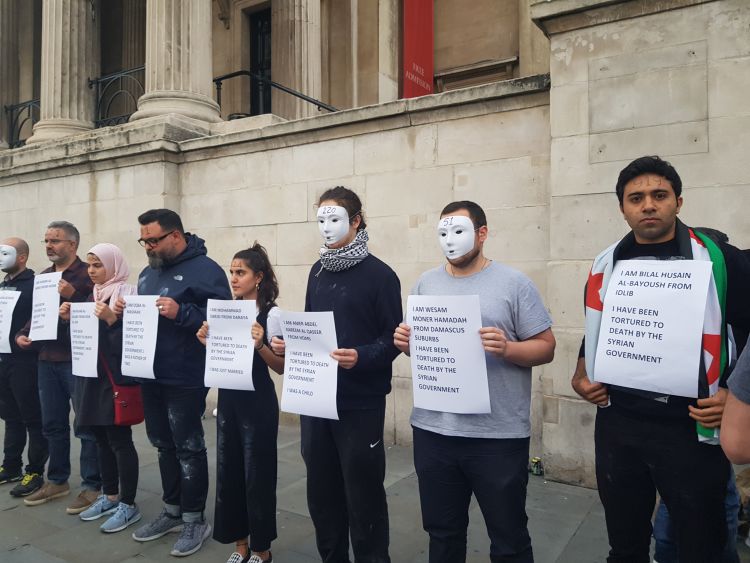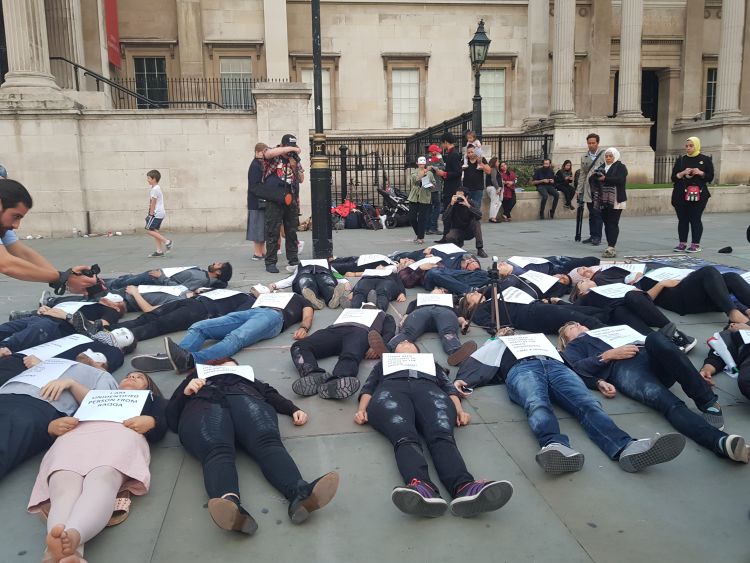I am revolutionist, nothing will kill me
from London
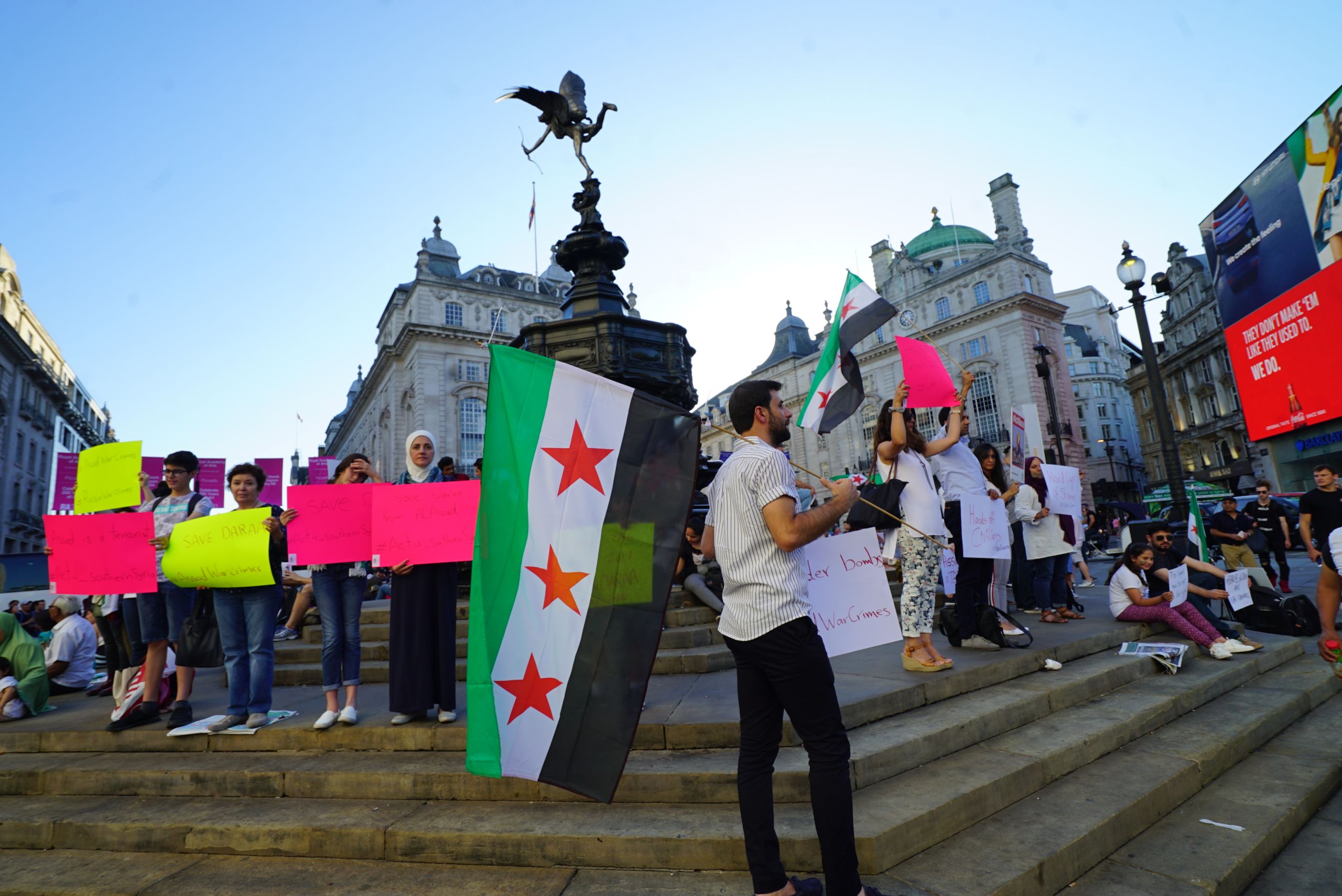
Ahmed al-Hussein ,is a Syrian man who has lived in London for 20 years with his wife and children.He came to UK in 1999 to continue his study in safety management .
According to a man who knows the meaning of freedom and dignity, it was easy for him to stand with the revolution against the president Bashar AL Assad in 2011.
He started to stand in front of the Syrian embassy in London .but, moved to stand in front of the Russian Embassy when the Syrian embassy was closed in May 2012.
Assad's regime withdrew the Syrian ambassador in London in March and four representatives were remained. Britain then expelled them in protest against the violence in Syria and closed the Syrian embassy.
On the street, opposite of the embassy, he puts pictures of the massacres in Syria. waiting for people crossing the road to tell them and explain about the facts that is happening in Syria.
He is also posting photos and speaking live on his Facebook every day.
The situation through the years :
The situation in Syria has changed considerably during the seven-year revolution.
When the Syrians ''broke the wall'' of fear in 2011 after the rule of Assad, the father "Hafez"and son"Bashar" for more than half a century.
Syria had severe political and social problems , with the regime accused of tyranny and corruption.
The revolution was a road where there was no return.
The Syrian revolution began with peaceful demonstrations that spread throughout the country.The government faced protesters with repression, arrest and murder.
The Free Syrian Army was established to defend the people against the Assad government.
The violence increased and the government began to re-establish entire corridors.
Since 2011, it is claimed the government has used arrest and torture to death , shelled neighborhoods using mortars,surface rockets, cluster bombs, phosphorous bombs, elephant rockets, explosive barrels and chemical weapons.
It also forced displacement of entire cities.
Since 2012 the regime has had political and military support from the Russian government.
Keep fighting :
Syrian activists sometimes meet to mark specific occasions in support of the Syrian revolution, but these activities are limited and do not attract a large number of people.
At the 5th anniversary of Al Assad regime's use of chemical weapons in the eastern Ghouta in Damascus, few Syrians and activists stood as a protest in front of the Russian Embassy.
In 2013 Al Assad's regime attacked Ghouta in Damascus by Sarin gas killing at least 1477 people and injuring more than 10,000 people.
The chemical attack is one of the largest massacres in the history of the Syrian people.
The relationship between Russia and the Assad regime
- Russia used its veto power for the 12th times at the UN Security Council to block action directed at its Syrian ally.
- Russia began military intervention in Syria in September 2015 .
Russian and Syrian air strikes are responsible for 70% of the total damage.
About 3 million homes were partially or completely damaged.90% of it by the Russian and Syrian forces .
- The result of the explosive barrels used on Syrian territory equal at least seven nuclear bombs.
According to Syrian network for human rights:
1900 days:
" Today I spend here 1900 , I wasn't expect that, I wasn't expect the syrian suffering will be until now " Ahmad said.
it takes him one hour and half to come to the Russian embassy from his home in west London by bus and tube.
He comes everyday even if he stands only for five minutes.
Neighbors and shopkeepers have come to know him, and Russian embassy officials know him too.
I went to Russian Embassy address while Ahmad wasn't there .
I would've spoken to people in the neigurehood about him, and what they see in Ahmad.
John who is working in the pop at the corner said :
" Ahmad has stood for five years , and nothing happened, I am really sad for that "
listen here what he said more about Ahmad .
john- bar tender
Death lists:
Since the beginning of the conflict in Syria, more than 85,000 people have been forcibly disappeared. Through abductions, arrests at check points or raids at their homes; 85,000 human lives have been taken away from their families and loved ones. Human Rights organizations have reported that the Assad regime is responsible for over 90% of these cases, while ISIS and other extremist groups are responsible for 6.8% of them, and other armed factions responsible for the rest.
Since 2011 there has been over 13,000 victims of torture in the Assad regime’s prisons, described byAmnesty International as a “Human Slaughterhouse”. Many of those executed were previously disappeared before the news of their death were leaked.
A group of Syria Activists wanted to mark the International Day of the Disappeared so they did an action in central London to stand in solidarity with the forcibly disappeared people of Syria and to echo the demands of their families.
They tied their hands and wrote numbers on their foreheads just like Caesar photos with the detainee name had written on their chest.
They also draw a square on the ground and sat inside it just like the detainees sit in over crowded small rooms.
The Syrian Network of Human Rights
Some people think that these stands or demonstration have no effect, others feel desperate, and others are swept away by the stream of life between work and family, while there are a number of activists who interact and try to do anything that reflects the revolution and rejects the crimes of the Assad regime which continue until these days.
Between disagreement and agreement, Ahmed still believes in what he is doing. It takes him 40 minutes to come to the Russian embassy. He comes everyday even if he stands only for five minutes. Neighbors and shopkeepers have come to know him, and Russian embassy officials know him too.
Some people believe that what he is doing is mad, while many people respect and love what he is doing to remain interesting in Syria and its great revolution.
sana-syrian activist
yazan- syrian activist
What ever people think .. Ahmed returned to the sidewalk in front of the Russian Embassy, to start the1901 days of working in the hope of freedom and justice to his homeland Syria.

